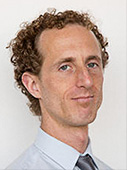Huntington’s Disease Treatment in Santa Monica, CA

Imagine having your ability to speak, walk, think, and your personality deteriorate just as you reach your peak. Sadly this isn’t a hypothetical; it’s reality for people with Huntington’s disease—a genetic, neurocognative disorder in which the gradual deterioration of neurons consumes a person’s ability to live.
What is Huntington’s Disease?
Huntington’s disease (HD) is not a contracted infection; it’s a genetic condition. Technically speaking, everybody carries the gene responsible for creating Huntington’s disease. However, it requires a parent to carry—and pass along—the expansion gene. This genetic “plug-in” allows your “molecular software” to run Huntington’s.
However, for the 30,000 or so people living with Huntington’s disease in the United States and the estimated quarter-of-a-million at risk, Huntington’s disease is a life-changing diagnosis.
The main area affected is called the basal ganglia, a small part of the brain responsible for muscle movements. A hallmark characteristic of Huntington’s disease is the degradation of fine motor skills into jerky, course movements. Chorea—a condition that causes uncontrolled “dance-like” movements of the body—is also a common early symptom of Huntington’s disease.
Stages and Symptoms of Huntington’s Disease
Huntington’s disease progression can span from 10-years to over twenty, it depends on the individual case. Juvenile HD typically progresses at an accelerated pace compared with adult-onset HD. Regardless, this debilitating condition usually follows three stages.
The first stage can begin anywhere between age 30 and 50 (adult HD). Involuntary movements (chorea) are a common first symptom as are increased clumsiness. Mental issues and problem-solving issues arrive in the first stage as well. Difficulty problem-solving, mood changes, as well as depression are not uncommon. Sufferers of Huntington’s disease will typically experience reduced productivity at work, school, and home during this first stage.
The second stage symptoms ramp up in intensity. The difficulty with problem solving can advance to large cognitive and reasoning errors/problems. Chorea and other motor problems like walking issues become exaggerated, impairing daily life and—in some cases—requiring the special care of physical therapists to help slow the physical progression of Huntington’s. Speech is usually affected greatly in the second stage; it can become slurred and present with difficulty swallowing. Everyday activities will start to seem arduous at best.
In the third and final stage, those with Huntington’s disease are entirely dependent on others for survival. They can no longer walk or talk. Chorea may intensify or may finally stop depending upon the individual patient. Death is imminent, though not from HD itself. Those with Huntington’s disease typically succumb to a secondary symptom of the disease, most commonly choking.
Treatment for Huntington’s Disease
Sadly treatment for Huntington’s is limited to supportive care and medication to help manage the symptoms such as depression and chorea. Huntington’s disease has no known cure at this time.
However, is available for those at risk. Some people chose to know if they will develop Huntington’s disease early and make future choices with their disease in mind, while others prefer not to know. There is also prenatal genetic testing where fertilized eggs can be tested for the gene expander, signaling Huntington’s disease. In-vitro fertilization—developed to treat infertility —is another option, making certain the soon to be a child will not develop Huntington’s disease.
While Huntington’s disease is a life-changing diagnosis, there are support groups and care facilities designed to help you get the most out of life, in the here and now.
Request more information about Huntington’s disease treatment today. Call (424) 365-1800 or contact Dr. Jeremy Fischer online.
Vitality Integrative Medicine
Address
4849 Van Nuys BlvdSuite 104
Sherman Oaks, CA 91403
(424) 365-1800
www.vitalityintegrative.com
Hours
Mon:
8:00 am - 6:00 pm
Tue:
8:00 am - 6:00 pm
Wed:
8:00 am - 6:00 pm
Thu:
8:00 am - 6:00 pm
Fri:
8:00 am - 6:00 pm
Sat:
8:00 am - 12:00 pm

